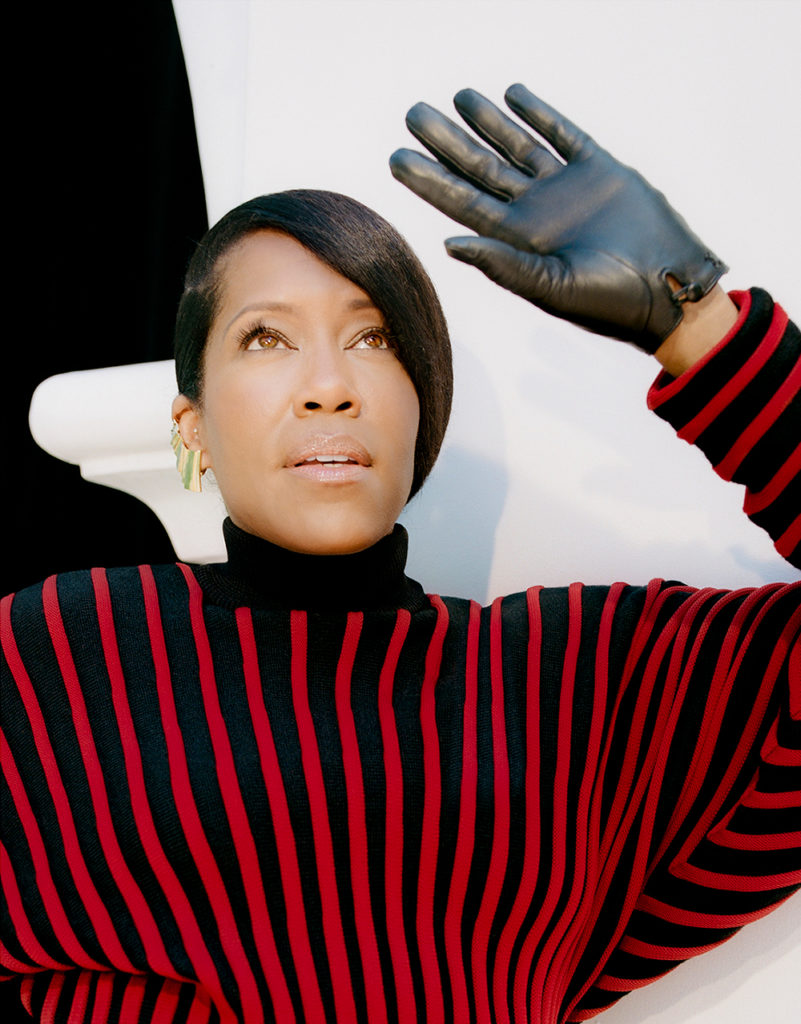
In 1921, an armed white mob invaded the Greenwood neighbourhood of Tulsa, Oklahoma, attacking black residences and businesses. Over the course of roughly two days, the once-bustling 35-block section of the city was burned to the ground. In its heyday, Greenwood was home to one of the largest concentrations of African–American-owned enterprises and wealth in the U.S., one of only a few black areas that managed to thrive economically after the end of the Civil War and into the 20th century. But in that violent aftermath, hundreds of black citizens were killed, thousands were left homeless, and many were arrested. The exact numbers are still unknown.
Widely considered one of the most brutal and shameful chapters in America’s past, that wrenching Tulsa race massacre finds itself recreated within the first 10 minutes of the premiere episode of Watchmen, HBO’s latest television series, built around a modern continuation of the landmark 1980s comic books of the same name.
Become an S Insider
The latest in fashion, beauty, design, and arts & culture.
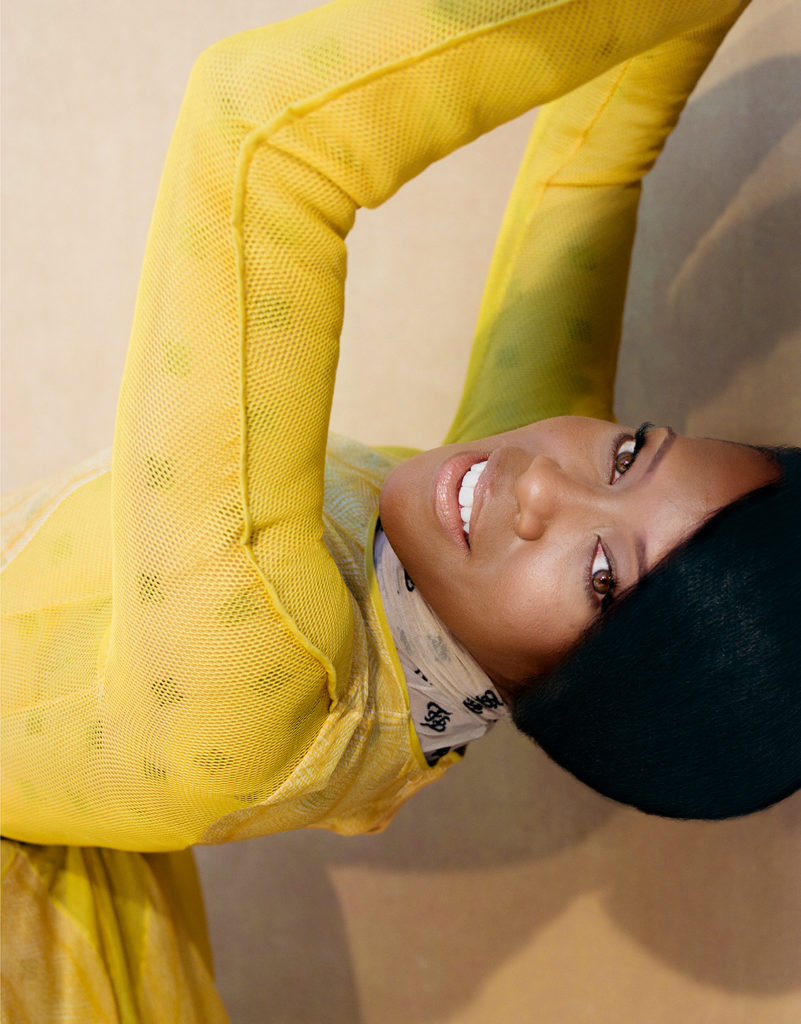
Created and developed by superstar TV producer Damon Lindelof (previously, he helmed the drama series Lost and The Leftovers), the show borrows elements from the legendary 12-issue miniseries, such as some fan-favourite characters and its setting in an alternative reality that closely examines the fraught state of the contemporary world through the lens of superhero tropes. Flash forward to Lindelof’s 2019 Watchmen, which picks up over thirty years after the events of the original comic and contains a completely remixed narrative with a new and disturbing conflict at its forefront.
This time, the modern villains, who seem directly fuelled by the hate of past generations, are members of a white nationalist terrorist group called the Seventh Cavalry who wear masks inspired by former anti-hero Rorschach (a tribute to a character murdered at the end of the original tale) while targeting police and people of colour. The result is a big, complex, and sometimes hard-to-bear series that’s not for the faint of heart, and that digs into some of the hottest social issues facing present-day America: a rising alarm for alt-right groups and hates crimes, the intersection of race and power, financial reparations from the government to black Americans (a tense talking point on the 2020 campaign trail), and more.
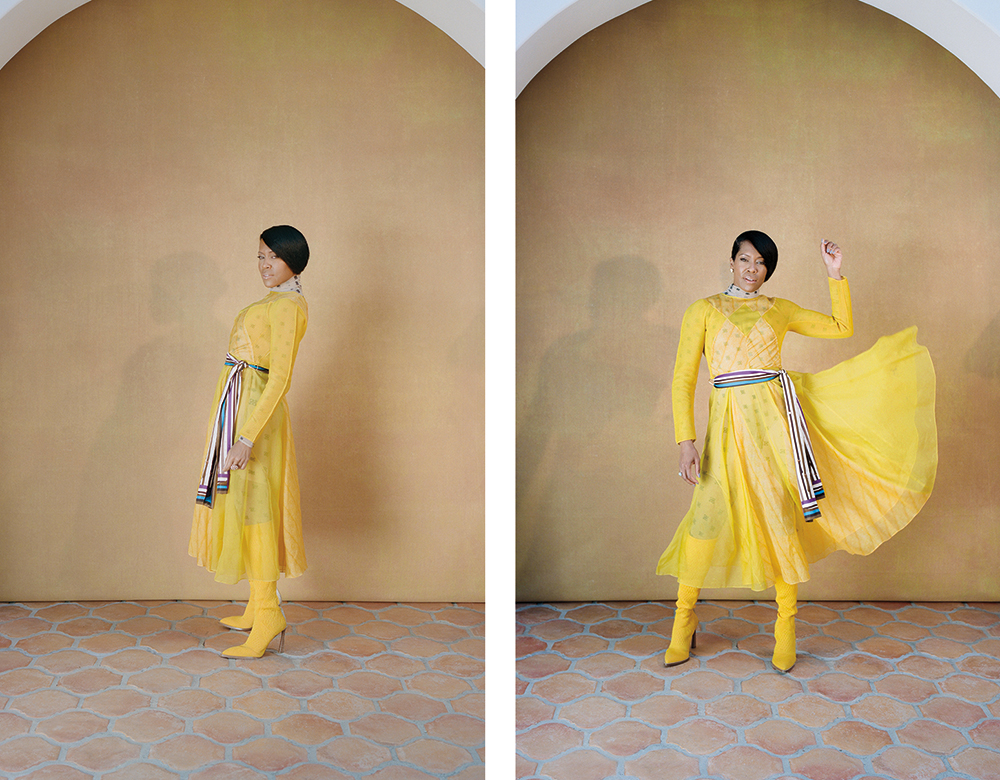
“It’s interesting. With American history, there’s a lot of revisionism going on. [We’re either] forgetting or don’t know a lot of the things that
have happened before this very moment,” comments actress Regina
King, who plays the central character of the show. “And as much as we want to say we’ve grown as a country, many things are eerily the same. They may just have been masked or tucked away. But just because something is out of sight doesn’t mean it doesn’t exist.”
King stars as Sister Night, a masked Oklahoma police detective with a righteous cause who maintains a cover identity as Angela Abar,
a retired cop turned baker. In this Watchmen universe, it’s the police,
and especially officers of colour, who have secret identities due to the extremists carrying out a coordinated slaughter of law enforcement. In
the course of investigating a colleague’s murder, the costumed crusader,
wife, and mother gets drawn into a mystery connected to a massive conspiracy much older than she is. “If you said this out loud, ‘We have real history and we also have an alternate history,’ that sounds crazy all in one episode, all in one show. But we do!” expresses the actress.
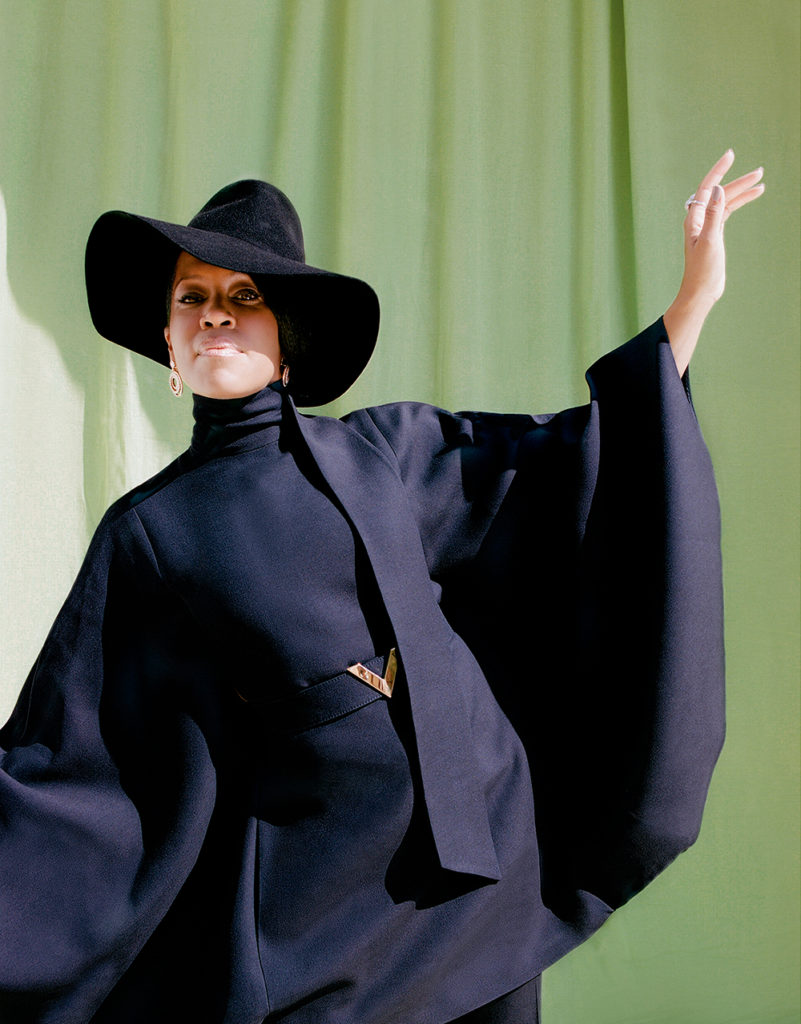
When it came to landing the part of the badass crimefighter, it turns out King was the showrunner’s top choice from the get-go. “When Damon Lindelof reaches out and is like, ‘I have a new project and I want you to lead this,’ you kind of faint, and then you get up and are like, ‘OK, let me read this and see what it’s all about!’” she laughs. For King, it was the perfect occasion to build a much-needed character arc. “I feel like I’ve never seen a woman like her on TV. And because of that, I felt like I had this special opportunity to create someone. That was just super exciting for me,” she says.
What’s more, the character–audience connection gripped the actress firmly. “I feel like Angela represents all of us in a lot of regards. One of the things I feel like makes her truly a window or mirror is that, in real life, we’re wearing different masks all the time. We all kind of navigate through life [like that]. When you meet Angela, we first see her in a classroom on bring-your-parents-to-school day, and that’s not even the Angela that we know. Most times, it’s to protect ourselves.”
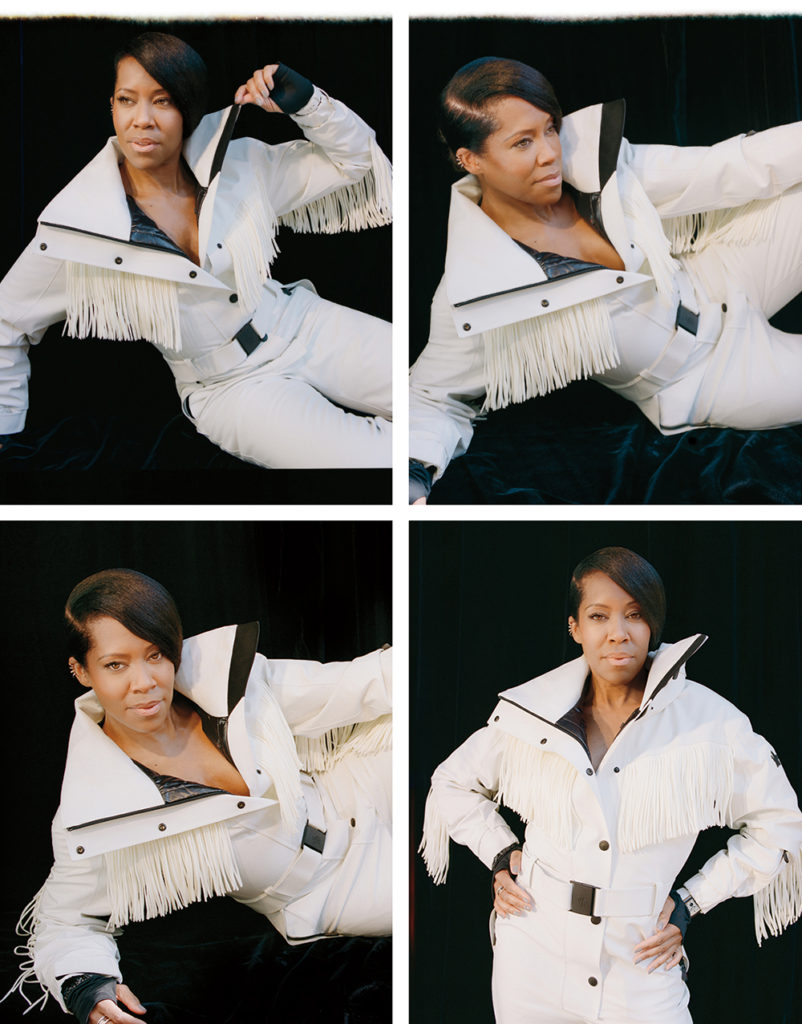
Daring new season aside, 2019 has already been a huge year for King. After more than 30 years in Hollywood, the 48-year-old was crowned with her first Academy Award in February, for Best Supporting Actress for her moving performance in If Beale Street Could Talk (2018). King’s Oscars victory—also her very first nomination—marked the fifth time a black woman had won the Best Supporting Actress trophy across the past decade.
In the first English-language film based on the 1974 work of African– American novelist and social critic James Baldwin—a central figure in the black gay literary community—adapted by director Barry Jenkins of award-winning Moonlight (2016) fame, King portrayed the mother of a young, pregnant woman in Harlem fighting to free her fiancé, who’s wrongly been accused of rape, from prison.
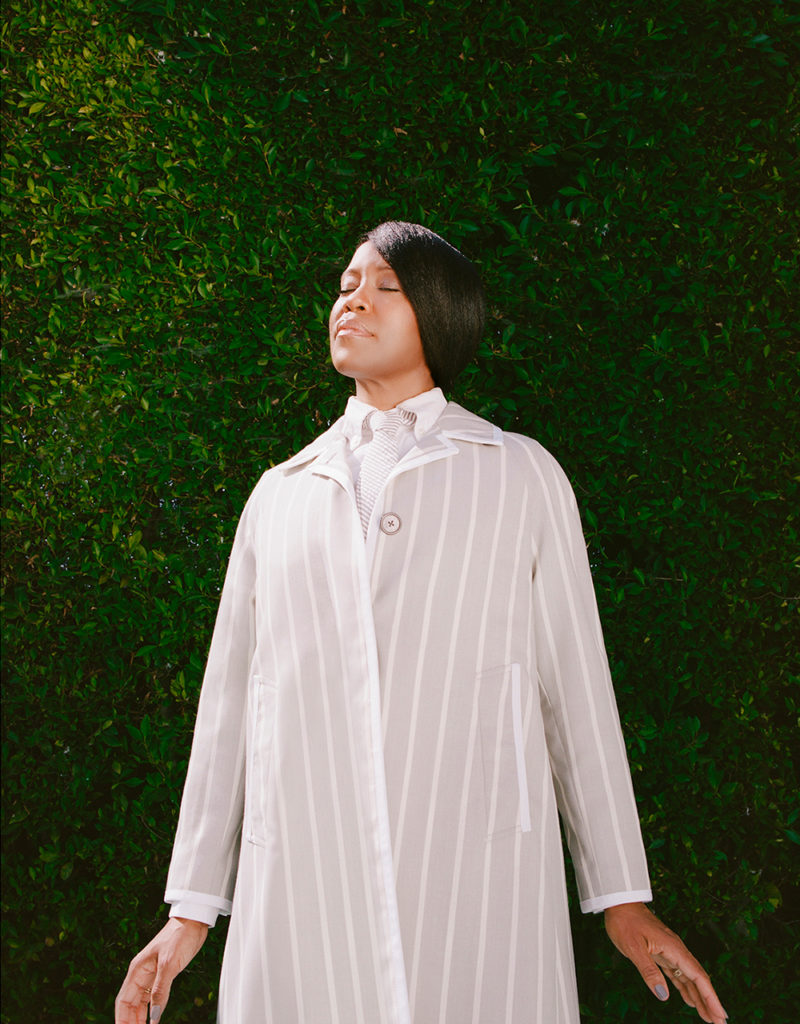
What was it like gracing the stage to accept that famed golden statuette? “It’s so hard to put it in just the moment, because it was such a journey from the first time I had a conversation with Barry. Throughout the entire process, I’ve had several moments of pinching myself,” explains King. “Like, I can’t believe that I’m actually part of the first screen adaptation of James Baldwin’s work. That in itself is just breathtaking for an American, I would think. And then to be a black American, it’s just another level of pride and gratitude,” she continues. “The man was a prophet. He spoke for those of us who didn’t have the platform or the confidence out of fear to utter the words that he would speak publicly in regards to the black experience and the black gay experience. It was a year and a half of a moment for me. The actual moment of winning might have been a moment of exhaling.”
During her emotional speech on stage, a teary, Oscar de la Renta–clad King paid tribute to her beaming mother, a big advocate of the film project from day one, she shares, who also shed a few tears as she watched her daughter from the audience.
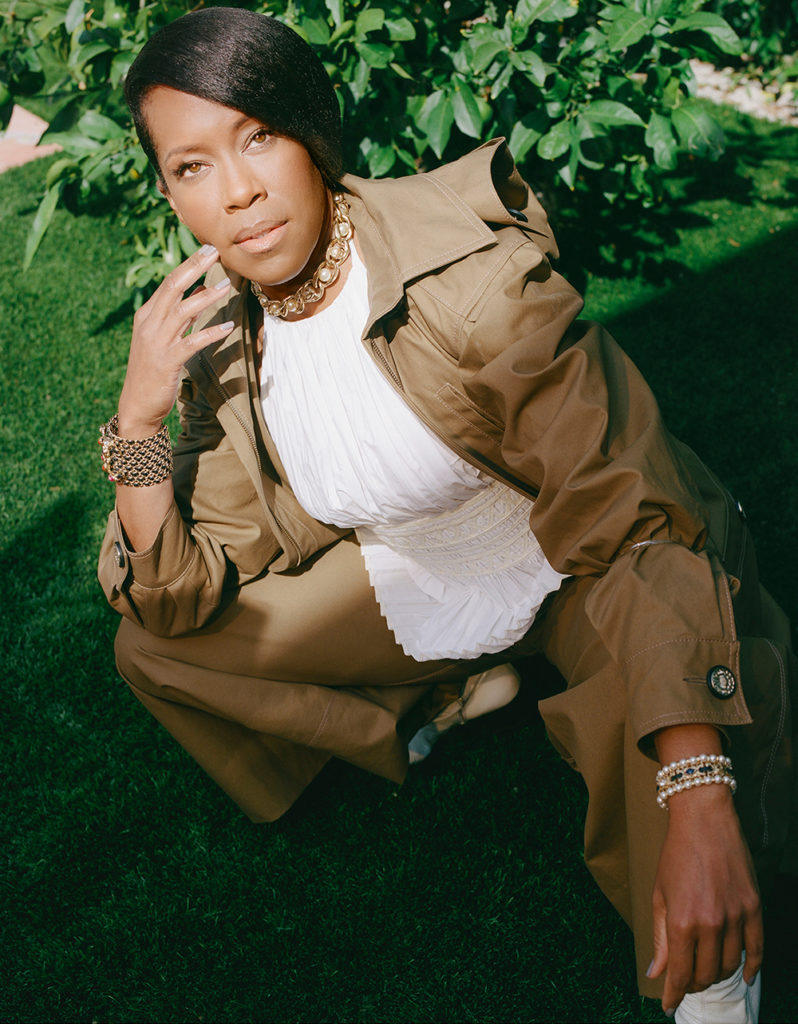
“I remember calling her and telling her that I was going to do this film, and that there wasn’t going to be a lot of money. Before I even said, ‘I have to do it’, she was like, ‘Oh, you have to do this!’” recounts King. “She’s always been proud, but again, there’s that pride, even if we weren’t mother and daughter, that you just have because this story is going to be told.”
And at the heart of that romantic drama narrative: black love—and all the pain, joy, and experiences that can go along with it. “The glue that has made people of colour persevere,” King affirms. “It was a moment of pride for [my mom], and probably even on a deeper level because of the age she is.”
Another major moment for King this year: being hailed by Time magazine as one of the most influential people of 2019. For the acclaimed list of 100 faces, which dropped last spring, each winner was written about by a colleague, friend, or another famous admirer. King’s A-list wordsmith? Viola Davis, who praised King for elevating artists of colour and “making me feel seen.”
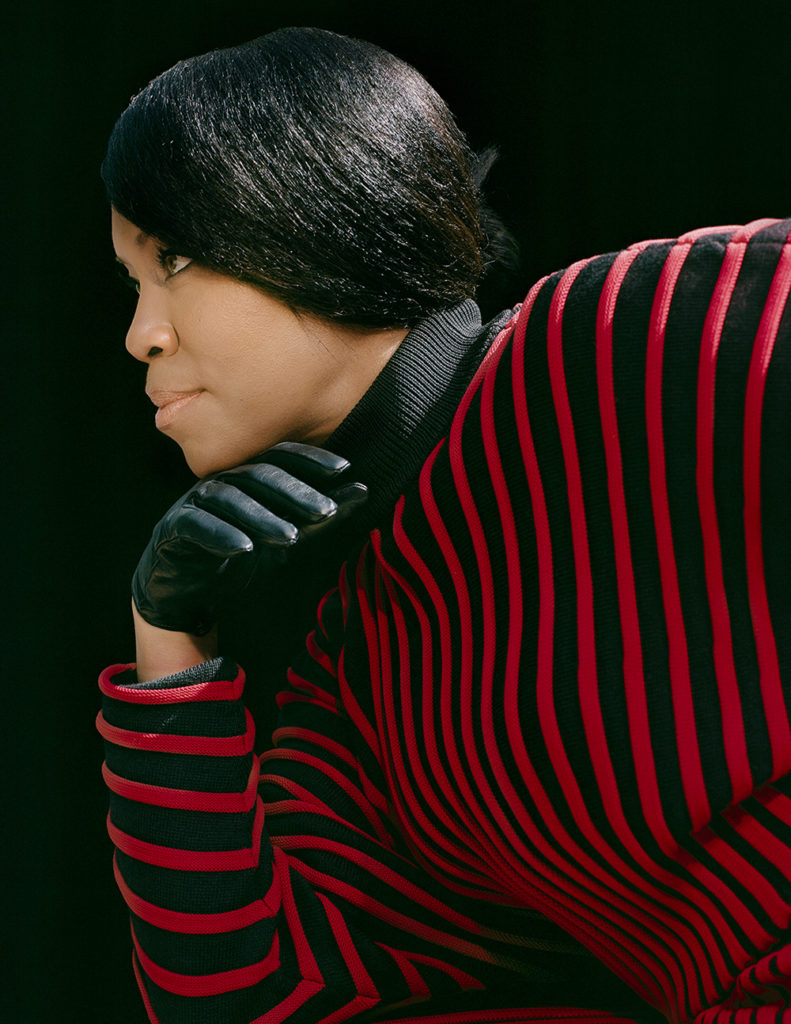
“If my publicist would have asked, ‘Guess who’s writing?’ I probably would have named like 15 other people. It was such a huge surprise!” expresses King, especially since the pair have only met in passing a few times. “We’ve never really had a long sit-down conversation. It just blew me away and warmed my heart so much. You just never know who’s paying attention and how long they’ve been paying attention.”
King’s landmark Academy Award accolade and well-deserved tribute cap off a streak of other notable industry mentions. Within the past four years, the actress has also picked up three Emmys: two for her roles in the ABC anthology series American Crime (she portrayed a militant Muslim and aggressively protective mother), and another for the limited Netflix series Seven Seconds, where she impeccably channelled a grieving mother whose teenage son was gunned down by a white police officer. Both hard-hitting series tackled race and injustice in America at their core.
With common themes brewing throughout her most recent work, what type of character stories does the seasoned actress strive for, especially as she barrels forward with her career? “I’m looking for great storytelling where it feels honest. Even if it’s comedy, it’s rooted in truth,” she shares. “That’s simply what I’m looking for. It just happened that the projects that spoke to me the loudest were ones that are really steeped in social commentary and experiences, and that are reflective of the world that we’re in.”
Photography by Leeor Wild at The Canvas Agency
Styling by Wayman + Micah at SWA Agency
Hair by Larry Sims
Makeup by Latrice Johnson
Nails by Mel Shengaris at Forward Artists

